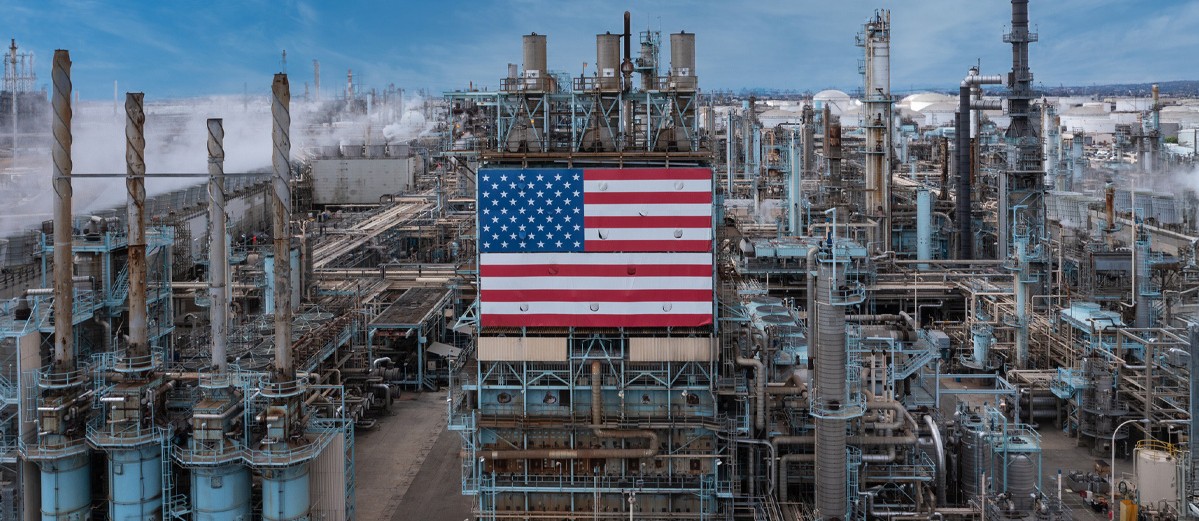

Investment Management -
Harris Vs Trump – what their policies mean for your portfolio
With the US election too close to call, we look at some of the key economic policies from both candidates, their potential impact on the markets, and how we approach our investment decisions.
Since we last wrote about the US election in May, a lot has changed. Biden has tapped out, with Vice President Kamala Harris taking his place as the Democratic nominee. This has reignited the race for the White House, with polls showing it will likely go down to the wire.
We look at the economic proposals laid out by both Trump and Harris and consider what a win for either candidate might mean for global markets.
Harris policy
“Vice President Kamala Harris has made clear that building-up the middle class will be a defining goal of her presidency. That’s why she will make it a top priority to bring down costs and increase economic security for all Americans.” [1]
Harris's economic platform is wide-ranging but with a clear focus on the working and middle classes. It includes tax breaks for small businesses, reform for housing, and proposals to make healthcare more affordable.
Her platform promises to fund these changes through higher taxes on corporations and higher earners.
In the event of a Harris victory, we might expect to see the following sectors benefit:
Renewable energy and green technology: Harris is pro-climate action, and her administration could introduce incentives for electric vehicles, clean energy, and green technology. Conversely, the fossil fuel sector may face increased regulation, which could negatively impact its performance.
Healthcare: Harris has proposed expanding healthcare coverage and tightening regulation on drug pricing. This could benefit healthcare providers, but pharmaceutical companies may face pressure on profit margins if price caps are introduced.
Kamala Harris’s fiscal policies favour households over corporations. Her plan to raise corporate taxes while providing relief to middle-class families could weigh on markets, as higher taxes would pose challenges for US companies.
Trump policy
“America needs determined Republican leadership at every level of Government to address the core threats to our very survival: Our disastrously open border, our weakened economy, crippling restrictions on American energy production, our depleted military, attacks on the American system of justice, and much more”. [2]
Donald Trump's platform is a reiteration of his 2016 campaign, doubling down on his promise to ‘Make America Great Again’ and put the US ‘first’. He argues that he will reduce inflation by cutting back regulation on fossil fuel sectors and implementing tax cuts. In the event of a Trump victory, we might expect to see the following sectors benefit:
Fossil fuels: While Harris is pro-climate action, Trump’s slogan is ‘DRILL, BABY, DRILL!’. A Trump victory is likely to result in some de-regulation for the fossil fuel sector and these companies may be boosted as a result.
Raw materials: Trump has made clear that one of his primary focuses is defending American interests and that he intends to raise tariffs on all imports to the USA. These tariffs will improve the relative competitiveness for US raw material producers who are currently squeezed on price by overseas producers.
Defence and security: Republican administrations have historically been positive for the defence sector. The last few years have seen a rise in geopolitical unrest and this, combined with Trump’s America-first stance and criticism of ‘low’ defence spending by NATO peers, make it more likely that we’ll see the sector benefit from a Trump presidency. Trump is also maintaining his anti-immigration stance, which would benefit domestic security sector with a likelihood for increased spending.
While Trump does not have the scope to bring through another significant cut to corporate taxes (as he did in 2016), he is promising to make those cuts permanent, which would be generally positive for markets. In addition, Trump’s promise to bring in tariffs on all US imports will benefit domestically-focussed stocks and sectors – typically smaller- and medium-sized companies.
On the flip side, the potential inflationary pressures that could develop from trade tariffs alongside more stimulative fiscal policy brings into question the trajectory for inflation and interest rates, thus likely to create volatility in government bonds. Despite the positive impacts from extended tax cuts for US equities, companies and regions with a greater reliance on global trade or manufacturing could see continued headwinds.
Expected outcome
While the race for the Oval Office is too close to call, it is important not to forget the power wielded by the US Congress. It has two chambers: the House of Representatives (currently controlled by the Republicans) controls fiscal policy and approves spending plans, and the Senate (currently controlled by the Democrats) votes on things like key government appointments.
Projections show it is possible for either chamber to be flipped in the 5 November vote, which adds further complexity to predicting post-election policy.
And there is always the possibility of an ‘October Surprise’ – an unexpected global event occurring in the last few weeks leading up to polling day that moves the dial on sentiment for either candidate.
What this means for your portfolio
In the run-up to election, it is common to see a decline in trading volumes as many investors adopt a ‘wait and see’ approach. This environment often heightens volatility in the weeks and months preceding the election, as market movements become less cushioned by liquidity.
When the election results are announced, expect short-term price adjustments in sectors poised to perform better or worse under the incoming administration. These movements can offer brief opportunities for investors.
With almost half the world’s population having been to the polls across the globe in 2024, we have previously written a more detailed guide to the impact of elections on markets here.
In the absence of an ‘October Surprise’ and without conviction on the election outcome it would be ill advised to rotate a portfolio based on a hunch of a Harris or Trump victory. If the call is wrong, it could be costly.
Our approach at Arbuthnot Latham is to remain objective. We base our investment decisions on data, rather than on emotion or speculation. We keep a keen eye on markets, trends and, when it comes to elections, the polls. We discuss and debate multiple scenarios and are poised to respond if we see an opportunity for our clients’ portfolios that we can act on.
Above all, despite uncertainty caused from elections, we firmly believe that the direction of the global economy will be the more powerful and overriding force for financial assets which we continue to monitor closely to guide the allocation of our clients’ portfolios.
Further reading

Navigating the Trump sequel: market implications and uncertainties in a second term
Now that Donald Trump has secured the Republican Party nomination, all eyes are on the global stage for the sequel to 2020’s Trump vs. Biden race for the White House.

Market impact: Investor insights for a year of global elections
We are over a third of the way through the ‘Election Year’ that is 2024, with almost 50% of the world’s population heading to the polls.
Author -

Gabriella Macari
Senior Investment Manager
Gabriella Macari, Senior Investment Manager at Arbuthnot Latham, joined the bank in 2019 and has more than 11 years of experience in the investment and wealth management industry. Gabriella played a pivotal role in the development and launch of our Sustainable Portfolio Service in 2021 and led our research coverage of the commercial property market from 2020 to 2022.
She holds the title of Chartered Wealth Manager, Investment Advice Diploma and the Private Client Investment Advice and Management qualification. She holds a BSc (Hons) in Economics from the University of Bath.
Outside of work, Gabriella enjoys cooking, reading, and finding opportunities to practice her Italian. She is also a keen runner and a lifelong Formula 1 fan.
DISCLAIMER
This communication should be considered a marketing communication. It has not been prepared in accordance with legal requirements designed to promote the independence of investment research. It is for information purposes only and does not constitute advice, a solicitation, recommendation or an offer to buy or sell any security or other investment or banking product or service. You should seek professional advice before making any investment decision. The value of investments, and the income from them can fall as well as rise, and may be affected by exchange rate fluctuations. Investors could get back less than they invest. Past performance is not a reliable indicator of future results. The tax treatment of investments depends upon individual circumstances and may be subject to change.
The contents of this communication are based on opinions or conditions as at the date of writing and may change without notice. To the extent permitted by law or regulation, no warranty of accuracy or completeness of this information is given and no liability is accepted for its use or reliance on it.